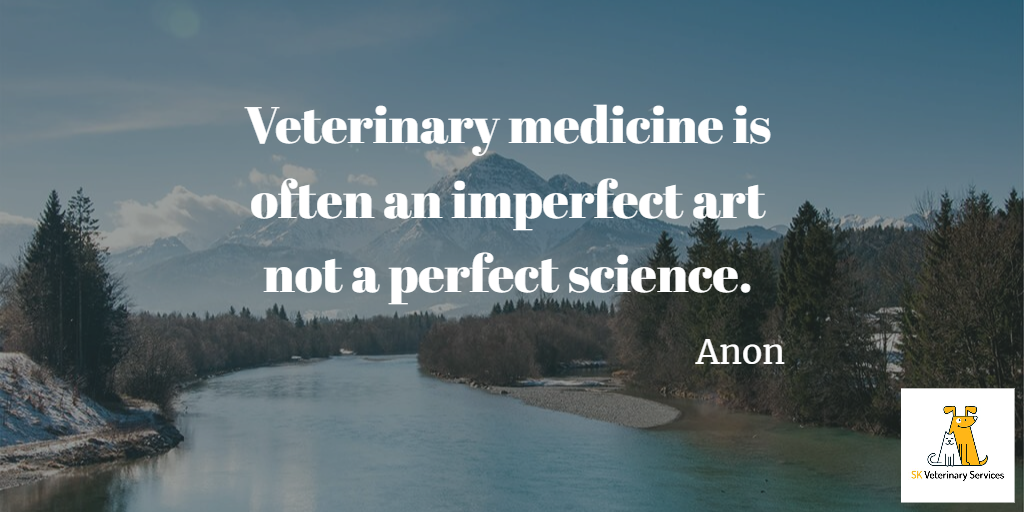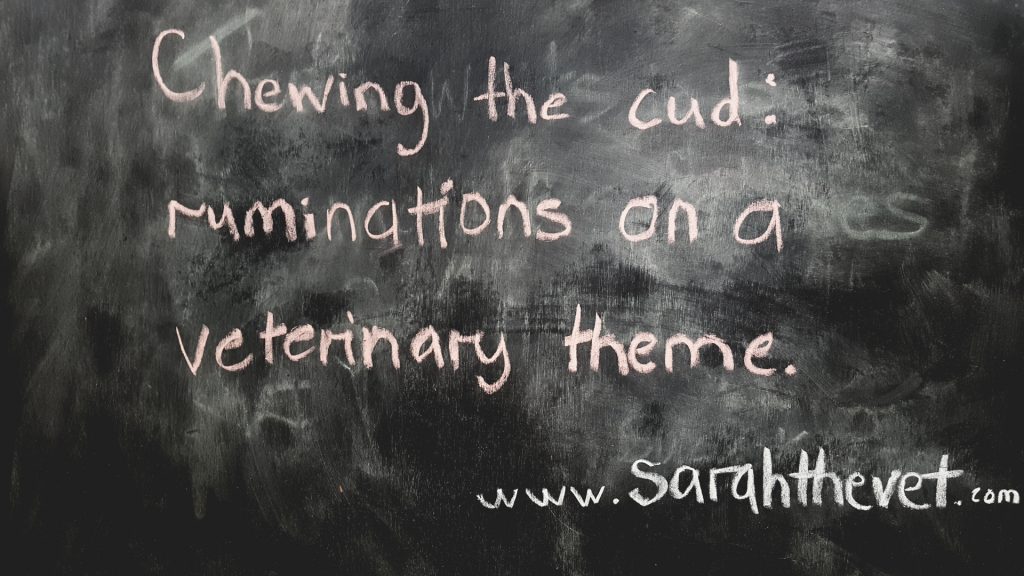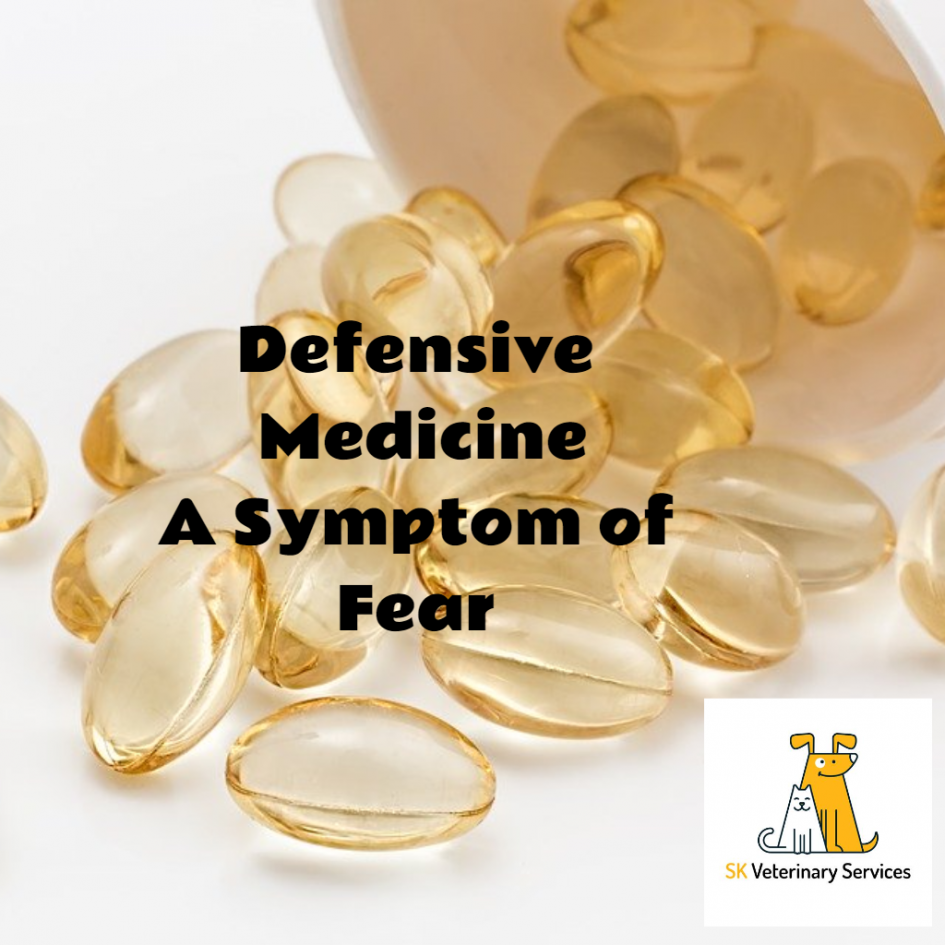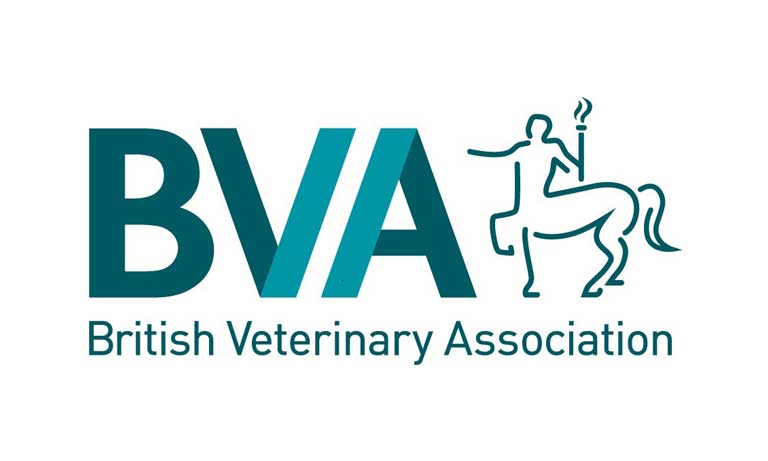I feel that one of the reasons why many are disillusioned with their veterinary career and thereby fuelling the negativity currently pervading the profession and increasing retention issues, is the constant background fear of a complaint being made to the RCVS, of being struck off and excluded from the profession they have dedicated most of their lives to. The perception seems to be that this has been growing steadily worse, but is that true? I don’t know; I was certainly taught as I left vet school that the RCVS were the vet police, there to protect the public against vets doing wrong. There were messages from the SPVS at the final year student seminar and new graduate VDS reunion on how not to incur a complaint or avoid having it escalated to a disciplinary. No-one was there to say that it is actually rare to get a full complaint, even rarer to end up in front of the Disciplinary Committee, and vanishingly rare to be struck off unless you had deliberately deceived or lied. That, though, was twenty years ago and the world has changed. It feels as though the concept of finding somebody else to blame for mishaps is much more prevalent, there are ‘no-win-no-fee’ lawyers advertising everywhere and consequently the culture shift has followed – if you are not happy with the situation then you not just deserve but are entitled to financial compensation if only you can find someone to accuse.
News in the veterinary press this week (late January 2020), that the RCVS is looking at reducing the standard of proof in disciplinary matters, is only likely to make this climate of fear worse. These proposed changes to the level of proof will make it easier for complaints to make it from the Preliminary Investigation Committee (PIC) to the Disciplinary Committee (DC) as they are more likely to reach the required standard of evidence to make an offence provable. It also makes it more likely that at the DC stage the complaints will be upheld based on likelihood of it occurring rather than the former standard of ‘so as to be sure’ – that is, did the event occur. Part of the problem is that many of the functions and processes to do with the RCVS are hidden and mysterious to the majority in the profession.
My concern is that the increased fear this will create will lead to an increase in the practice of defensive medicine, which will not help the animals, clients, our colleagues or the profession. I already see how those who are scared of the potential of litigation change their behaviour to be more defensive; I know because I have done it myself, both consciously and unconsciously, when I felt the practice, business or boss did not have my back. I did not trust that they would support me if a complaint was made, over covering their own backs at my expense. I see how defensive medicine reduces our ability to provide a speedy, evidence-based, and affordable veterinary service, and everyone loses out.
The problem of defensive medicine is well documented and studied in the human medical world (see here, here and here). It is worrying how infectious defensive medicine is; it is common in doctors who have had complaints made against them, naturally, but also almost as common in those who were not directly involved, who simply had colleagues who had received complaints. In the super-connected world we live in now, all our colleagues are online; not just in our own practices but also the group of practices, the country, the EU, the Western World. Not all may openly discuss complaints and the DC but as an example some Facebook groups allow anonymous postings and discussion in those groups is commonly about complaints being made again veterinarians. I also worry that the peer pressure of these groups and the judgement they pass, intentionally or unintentionally, is artificially inflating the fear felt in the profession, caused by the RCVS’ opaque, “we’ll tell you if you’ve done wrong once you do so”, method of setting acceptable standards.

What is Defensive Medicine?
Defensive medicine in simple words is departing from normal medical practice as a safeguard against litigation, or defensive actions undertaken as a result of succumbing to various sources of pressure derived from the system, the clients, the regulator and our peers and colleagues, rather than focusing on the patient. The focus shifts from doing the best thing for the patient to covering your own back and then using the least risky of whichever options remain regardless of efficacy.
This includes overcautious behaviours such as performing unnecessary diagnostic tests and investigations, which are usually seen as harmless, to prescribing unnecessary treatment and needless procedures or hospitalisation. It also covers the avoidance of anything risky perhaps by not giving the owner the option, putting them off from consenting with a long list of possible and worrying complications or requiring referral for treatment when in the past a primary-care vet would have been able to provide this care. I also include in this the consultation style of giving clients a list of options and letting them make the decision on how to proceed rather than guiding them through the decision-making process using experience, knowledge and assessment of risks and it being a collaborative experience.
My personal act of defensive medicine was to make longer, significantly more detailed notes even though these took much longer to write, taking time away from other tasks. I also became more controlling over cases that I had any, even peripheral, involvement in, double checking that everything had been done rather than trusting my colleagues to fulfil my instructions, effectively and unfairly treating competent staff as “guilty until proved innocent”.
Where Do These Fears Come From?
If we are going to address this fear, we first need to learn the root causes of it before we can know whether it is justified or nothing more than fear of the unknown. Although each member of the profession will have their own instigating factors, some themes are definitely more common than others.
- As I suggested above, fear of complaints, clients and the RCVS, which may be worsened if the standard of proof is lowered as is proposed. I wonder if the Alternative Dispute Resolution scheme has also inadvertently increased the anxiety of practising vets as clients now have another official way of complaining and certainly the reports from vets who have been through the process are often critical that rather than being completely exonerated, they are left with a vague sentence of ‘could do better.’
- Pressure from teaching at vet school, lectures from eminent specialists, and systems in practices, stating that the mythical ‘gold-standard’ is always to be aimed for and is the best, implying or sometimes even outright stating that anything less may leave you open to liability or complaint. Clinical reasoning is replaced by guidelines and protocols with the concomitant pressure to adhere to them.
- Fear that the VDS won’t cover you if you don’t achieve the ‘gold standard’ in a particular way. This may seem hard to believe but it is very much perceived as real by some and compounded by senior clinicians or referral level vets at CPD events stating that ‘the VDS won’t cover you unless you do it my way.’ Though the VDS Newsletter is enlightening in pointing out ways that clinicians can come unstuck, my opinion is that it also increases fear and thus defensive medicine, which would actually be in the VDS’ best interests as then they wouldn’t have to defend so many complaints and pay out less compensation.
- Students and residents taught at university to take litigation into consideration as part of every clinical decision.
- Fear of criticism and peer pressure. Reflective obedience to our seniors rather than questioning authority; that is, not pointing out to somebody you respect or who has a reputation that they might be wrong about something.
- Blame cultures within some veterinary working environments, leading to an erosion of trust, the anticipation of a lack of support if a complaint was to be made, and even that blame for mistakes may be shifted to those not involved. Critical incident reviews being more about determining who the problem may be most easily pinned to (or ignoring it as one of those things that happens from time to time) rather than preventing it happening again.
- Lack of leadership and mentoring in practices so that younger vets don’t feel supported or could expect someone have their back if a complaint is made. A lack of training in personal skills that would help to prevent disagreement, misunderstanding or dissatisfaction from being turned into a formal complaint.
- Decreasing tolerance in society as a whole for mistakes and failures and a demand that the treatment always has the anticipated positive outcome. A lack of understanding in clients that veterinary medicine, as with human medicine, is an imperfect art not a perfect science. This is compounded by the increase in service-driven society where clients no longer see that they are paying for the time and expertise of a vet, they increasingly see it as having paid for a required outcome and require that that outcome is delivered whether it is feasible or not.
- An inability to analyse and assess risks (i.e. likelihood versus impact) in both vets and clients.
- Burnout associated with both decreased doctor well-being and increased defensive medical practice so it feels likely that similar outcomes should be expected for vets. Perhaps the practice of defensive medicine a symptom of impending burnout as anxiety increase with this.
The Dangers of Defensive Medicine
Now we have uncovered some of the causes of the underlying fear that leads to defensive medicine, lets ruminate on some of the effects of it:
- Following ‘gold-standard’ purely to reduce the chance of litigation removes decision making from individual cases, vets and owners. Removing choice and clinical reasoning from clinicians, increases boilerplate care at the expense of a program individually tailored for the animal’s best interests. Removing choice from clients, possibly increasing the rate of unnecessary euthanasia when treatment options are restricted to only those with negligible risk
- Writing clinical notes with the primary purpose of pre-empting any future legal action by documenting that the practitioner is practicing according to the standard of care, instead of passing full and useful information to subsequent clinicians.
- Reducing evidence-based medicine and stifling changes that may actually improve care over time, for fear that you will be judged according to what the majority do rather than what the case-specific evidence as well as client requirements shows is likely to be the best way.
- Increasing costs of veterinary care due to excessive, unnecessary tests or procedures, thereby reducing access and dissuading people from treating minor ailments.
- Increasing the costs of insurance and registration to vets.
- Reducing learning and growth in clinicians when they refuse to see anything outside their primary knowledge and skill area, and not challenging themselves or learning, stunting their professional growth. This may also lead to an decrease in job dissatisfaction where the enjoyable requirement to think and diagnose is replaced with thoughtless, restricted adherence to predefined and unchangeable rules.
- It may, perversely, result in an increase in mistaken diagnosis or inappropriate care as vets feel they have no choice but to move towards simply picking which pre-determined “menu” is least inappropriate and thus least likely to cause litigation, rather than looking at the evidence presented to them and being able to use their skill and intuition to address the individual problems.
- Overuse of drugs such as antibiotics, triggering an increase in resistance and the already-common belief that antibiotic use is justified simply because the client expects it e.g. acute diarrhoea or cystitis signs in a young cat.
- Increasing stress and anxiety by vets believing that by missing out on some of the defensive steps they may leave themselves not having a defence when defending their conduct after a complaint which is no longer a rarity only to be expected in the event of a serious mistake, but an inevitability that – hopefully – just hasn’t happened yet. An increase in stress obviously leads to an increase in burnout in the profession. There is also a vicious cycle of being more aware of potential problems, worrying more about them, and thus losing sight of the task in hand and making the anticipated mistakes more likely.
- By implying that there is a universal “gold-standard”, it gives a ready excuse to those who wish to cover up their own indecision, lack of skills or experience. This may be particularly telling for those who are pushed into positions of high responsibility before they have gathered enough experience of their own, such as those taking on Clinical Director roles when only a few years graduated.
- Reducing the reporting of mistakes and near-misses due to a fear of complaints and litigation, ensuring that we fail to learn how to prevent them in future.
- Reducing the ability to properly analyse risk.
- Reducing the welfare of our patients when they are subjected to unnecessary procedures.
One of the biggest hidden dangers of defensive medicine that I can see is the reduction in uptake, and changes in attitudes towards, evidence-based medicine which is vital if medicine is to continue to improve care into the future. Currently, defence against serious complaints is taken in the context of what a reasonable vet of the same skills and experience would do in your circumstances. But what if we have all been doing something a particular way or been giving a certain medicine for treatment and then evidence is brought out that shows that that way can be improved or needs changing in some fundamental way? What if in a specific case the “gold-standard” method is somehow contraindicated? The danger with defensive medicine is that the mindset becomes fixed to think along the lines of what everyone else is doing, checking in with vet groups on Facebook or colleagues at CPD meetings. After all, if everyone believes that something is true then surely it must be true. Who, then, would be the first to try something new – something less well known and so automatically with less well-defined risk boundaries – if the danger of it going wrong would destroy the primary line of defence in a disciplinary situation of not being able to prove the majority of other reasonable people in those circumstances would do the same?
This is not all simple doom-mongering over a “what if” scenario. I can present a very real example of defensive medicine in action. There has been good level of evidence available for several years indicating that there is no benefit for the blanket use of antibiotics in dogs with sudden onset bloody water diarrhoea (now called “acute haemorrhagic diarrhoea syndrome”, AHDS) that are not showing signs of systemic illness or sepsis; in fact there is growing evidence that most cases are viral in origin. Despite this I see on a frequent basis that every case of haemorrhagic gastroenteritis automatically and consistently receives broad-spectrum antibiotics, often intravenously. This is “what everybody does”. It is “what the client expects and therefore requires”. “Everybody knows” – at least clients do – that injections are somehow better than pills because there’s a needle involved.
Of course, by doing this we risk increasing antibiotic resistance selection, we harm the patients’ microbiome the effects of which last for many months or even years, and the financial cost to the client may be not insignificant if we are talking about one or two differing intravenous antibiotics over several days. (If you want to learn more about the latest developments in AHDS then there is a good podcast on Veterinary ECC Small Talk).
If we want medicine to continue progressing and improving then we need to be prepared to change, to not just blindly follow what has been done for decades or centuries before. Without the ability to take occasional risks – well thought-out, managed, agreed and understood risks – we would have never progressed far beyond herbal remedies. Don’t get me started on homeopathy, which was invented before sound scientific facts on how the body and drugs work.
Standard operating procedures are a vital tool for our profession and are, at least hopefully, created and frequently reviewed and updated by the leaders in the respective fields. The RCVS’ planned change seeks to shift this such that SOPs are defined by conservative consensus with anyone who dares to act differently leaving themselves open to an increasing and potentially life-changing risk, that of being struck off for thinking for themselves.

What can we do?
Here are some ideas I have come up with to try to address the practice of defensive medicine and its underlying causes. I make no suggestion that these are exhaustive and offer these as a starting point for discussions. I hope that you can come up with more.
- Reduce the fear and discuss complaints proportionally as they are inevitable in every sector of veterinary work.
- Teach people how to deal with complaints, at every level, not just senior vets or clinical directors that may currently be expected to deal with them. If you have the skills to deal with such situations then you are much less likely to be scared of them to start with and well-handled complaints are much less likely to escalate to the stage of reaching the RCVS. Very often a complaint can arise simply because the client is feeling frustrated, confused or talked-down-to and simply trying to see the world from their point of view can help you understand why they might be upset with a situation that feels perfectly reasonable to you. The VDS provides a lot of training on this including a free VDS webinar on handling complaint.
- Improve communication skills for use in consultations and with working in teams. The soft skills involved with dealing with clients rather than clinical issues still don’t seem to feature highly in veterinary university courses.
- Teach consulting models of collaborative care, working with clients and assessing risk. Build confidence in clinical decision-making and start using likelihood ratios to explain statistics to clients. Younger vets, like junior doctors, are more likely to practice defensive medicine due to a lack of confidence and experience to know what level of intervention is appropriate; active support, teaching and mentoring is essential to help them as they navigate the difficult balance of doing enough but not too much as well as judging whether a client’s expectations of them are reasonable or excessive.
- Teach young vets the actual level of risk of RCVS DC investigation or action. Currently for whatever reason the RCVS keeps the DC and the rules and standards it seeks to uphold as a closely-guarded secret until you find yourself standing in front of it. By keeping this as a “black box”, the fear of the DC is made significantly worse – and therefore significantly more effective – by adding the inscrutability of an immovable power, something to be spoken of only in a hushed voice. It is in the RCVS’ interest, whether intentional or not, to enact this image of the hand of God, even if the actual smiting is very rare. From the years 2010 to 2015, each year there were just under 800 complaints made to the RCVS and only 10 to 12 of those each year went to the Disciplinary Committee.
- Cautious and judicial use of guidelines and best practices rather than prescriptive “gold standards of care” which are, sadly, widely seen as tick-box exercises. Areas of practice where practice protocols are likely to be useful are those which cover situations that might make vets apprehensive or unsure of their decisions. Recent examples might be whether a vet has to attend an animal outside of the practice, what to do with non-registered requests for treatment, what level of information to give clients to cover to obtain informed consent, out-of-hours standard of care post-surgery.
- Teaching that ‘gold-standard’ is good to aspire to but is not something that is expected to be achieved in every circumstance. Satisfactory is often good enough. “Gold standard” should be seen as something above and beyond good enough.
- Monitor for defensive medicine in your practice. For example, the diagnostic ratio of imaging and blood tests to consultations may be high if a vet is practicing defensively, or a clinical audit of antibiotic use shows that a particular vet is giving antibiotics to all diarrhoea cases.
- Talk about reducing errors and mistakes and analysing how best to do this. Looking at where errors occur and managing and preventing them is the best form of defence.
- Call out the people who say the VDS won’t cover you if you don’t do something a certain way, or that you won’t have a defence against the RCVS if you haven’t done all the tests first.
- Improve the transparency of the RCVS and the disciplinary process. A mandatory-membership professional body should not be its members’ primary fear. It’s time to stop the bogey man image.
Summary
Sometimes it seems that we can do very little as individuals to reduce the propensity to practice defensively, yet it should be the responsibility of each of us to help, whether we are first-line practicing vets, leaders in a practice or part of the management structure in corporate employers. After realising the dangers of allowing defensive practice to continue and expand unabated, knowing the risk factors that put on the pressures that lead to it and then thinking about some ideas of what we can do to address it, I hope others will join me in reining in the fears and anxiety. Above all, by addressing the fear and pressures currently exploding in the profession, we can help address the retainment problem that is growing, especially in our younger colleagues. A happy, healthy profession is what I am sure we all wish for, so let’s make a start.



1 February 2020 at 10:48 am
Excellent article and discussion Sarah And a lot of why I created VetX – to teach the communication skills that mean you do not have to worry about defensive medicine. Also… as I researched my book So You’re A Vet… Now What? I found no evidence of mounting complaints against vets. The best protection against this is to be a good human, treat others well and communicate clearly your expectations and plans. Including when they change. Also deal with complaints using a great formula we teach in VetX. Do this and you will most likely avoid any issues.
1 February 2020 at 7:55 pm
Wise words from Dave. VetX:Thrive is an excellent course and I hope one day to do the leadership course. I recommend your book to all new graduates I come across.
28 April 2020 at 7:42 am
Very interesting article, even for a non-vet! I was reminded of issues raised by the sociologist Prof. Frank Furedi in his Culture of Fear series of books e.g. https://www.amazon.co.uk/Culture-Fear-Revisited-Frank-Furedi/dp/0826493955/ref=pd_sbs_14_1/258-1499193-1759648?_encoding=UTF8&pd_rd_i=0826493955&pd_rd_r=cfe352a7-caec-4176-8b95-ce46a1863055&pd_rd_w=B2rlc&pd_rd_wg=4s6tE&pf_rd_p=2773aa8e-42c5-4dbe-bda8-5cdf226aa078&pf_rd_r=0WHC8N6ZG0X70CNJYY2F&psc=1&refRID=0WHC8N6ZG0X70CNJYY2F
23 May 2020 at 8:11 am
Hi David, I’ve not read that book – another one to add to the pile 🙂
11 November 2020 at 2:03 pm
Thank you for your article, I just read it in the vet times probably the best coal face explanation of where veterinary is today I have ever read. I don’t think I have every been motivated to comment on a vet blog before. Thanks so much for expressing this so well.
11 November 2020 at 6:38 pm
Hi James,
Thank you for your kind comment.
20 November 2020 at 1:25 pm
Hi Sarah. Excellent article about defensive medicine. I am now semi retired from equine practice but concur with all your comments. Over the 40yrs of equine vet work, I could see the gradual and insidious growth of “gold standard” esp in insured animals or perceived rich horse clients. It is wrong and one should use informed consent rather than bully clients into paying for your defensive actions. I co-own the Equine Veterinary Group ( a email based discussion forum) and would like to put a link to this article for others to read. I had not read your blog before but heard about it via your article in Vet Times (Nov 17th 2020 edition).
20 November 2020 at 8:21 pm
Hi Mark,
I agree regarding informed consent. Working WITH clients means not just giving them information as to what is ‘best’ but to guide them through the decisions they need to make to make the best decision for them. It is one of the parts of being a GP vet I find the most satisfying.
20 November 2020 at 2:59 pm
I qualified in ’63 from Cambridge so have been around a bit and still practicing.
I was so impressed by your article Dangers of defensive medicine in Vet times.You have completely paraphrased my thoughts on the profession as a whole and in particular the lot of young vets. I have been hauled up before the RVC disciplinary committee so understand the pain and anxiety.Your comments here averred appropriate.
One point you have not touched on because ,maybe it is politically incorrect, is the dominance of corporate practices. I practice in London and experience (now especially) the results of defensive medicine practiced in these corporates.It would be good to hear your views. Thanks so much for opening the eyes of the blind and the minds of the oppressed ! .
20 November 2020 at 8:24 pm
Hi Andrew,
Thank you for your kind comments. I hope the young vets of today have the stamina and will to continue to be part of the profession for as long as you have been. I’ve only been a vet for 18 years and yet the changes I have seen have been rapid – the changes you have seen must be astounding.
20 November 2020 at 3:59 pm
This is so relevant to vets in the UK it’s not funny. The comparison to Australia astounded me.
27 November 2020 at 12:18 pm
I very much agree with what you wrote in this brilliant article. The view most of vets have of the RCVS as an institution that sometimes seems more acting as “policing” over its members rather than representing them it’s one of the core points.
If we want to start tackling mental health issues more effectively we have to focus more on prevention as it is the whole system in which we work that often is the most contributing factor.
2 December 2020 at 4:40 pm
What an excellent article on Defensive Medicine which can paralyse younger graduates and run up unnecessary bills for clients. The emphasis on treating each case individually and discussing the risks on a case by case basis rather than trying to follow a ‘gold standard flow chart’ made for pleasant reading. Hopefully, anyone reading this thinks about how being paralysed by fear of litigation and defensive medicine prevents clinical growth and job satisfaction and can take remedial action and stay in the profession. I read the article in the Vet Times today and felt I had to comment, although I am not prone to doing such things. Great work.